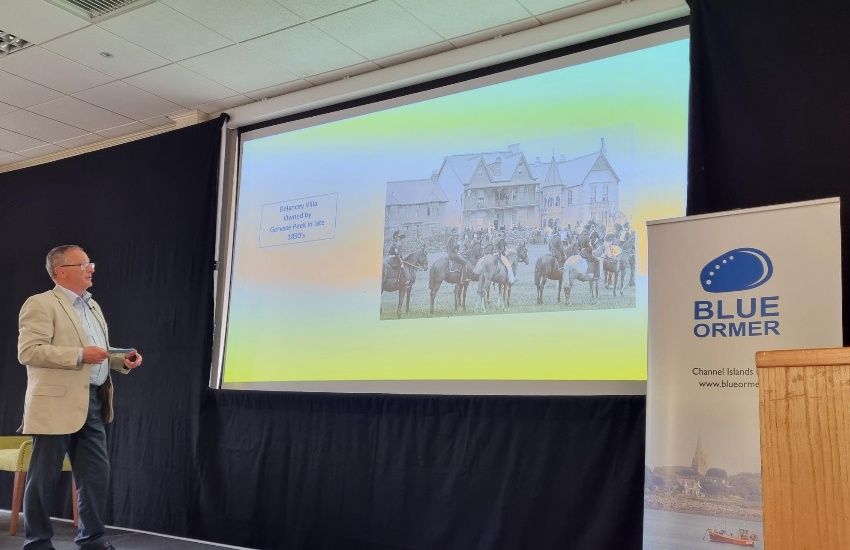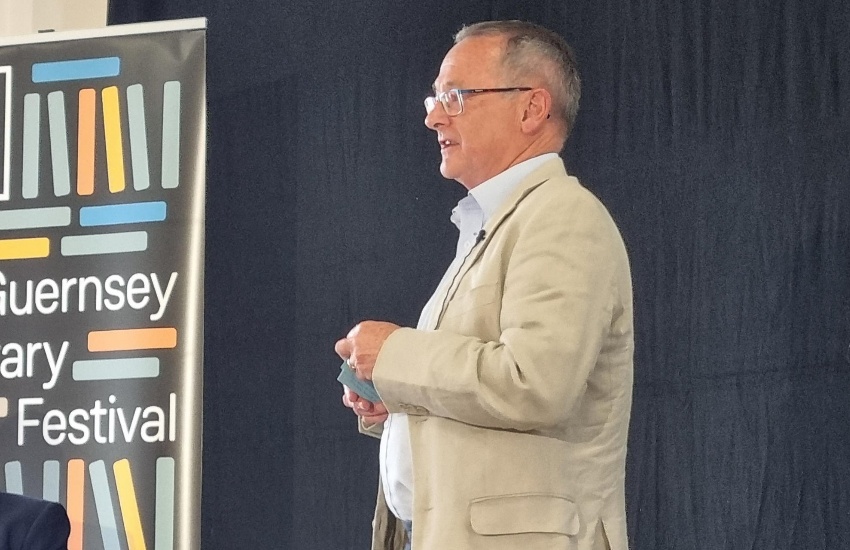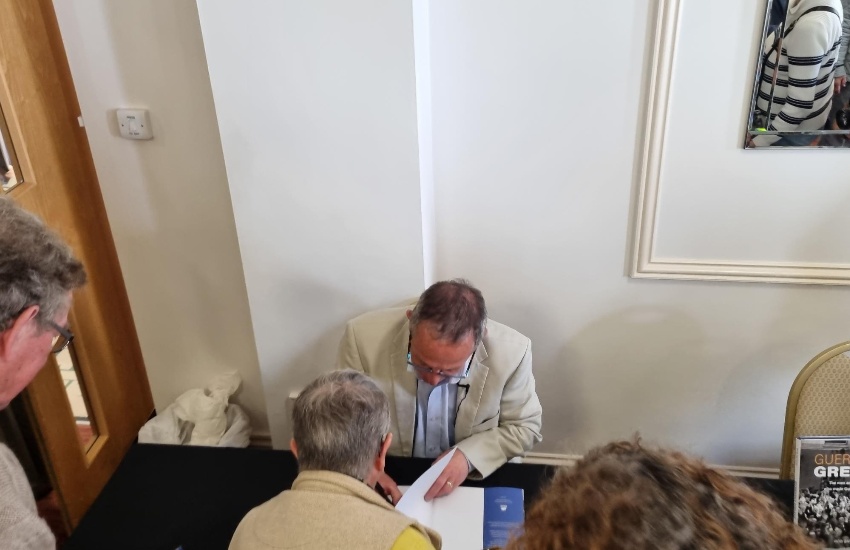


There was a warm reception from a 100-strong Literary Festival audience as a local author recalled tales of some of the greatest Guerns who have shaped the island in recent history.
Rob Batiste was inspired to write his new book ‘Guernsey Greats’ after producing a series of articles on ten men who helped shaped the island around the 20th century.
He was pushed to update the work of L. James Marr who wrote ‘Guernsey People’, but most of the individuals included have been dead for some time, and featured tales of “various witches”.
Mr Batiste said many of them were intricately linked and involved in key industries and innovated with new technologies. He also said many of their children married each other, and they all lived just a stone’s throw from each other.
His top man was Gervaise Footitt Peek, labelled the “grand old man” by the media at the time, who helped to set up the newspaper and served as its Chair until the day he died.
While he was a “media tycoon”, Mr Batiste noted he had wide-ranging business interests from running the trams after competing successfully with the horse-drawn omnibus company, levelling Les Banques, and serving as a director of Fruit Export and CI Vineries – the latter now set to become the Pointues Rocques housing site.
Living opposite Delancey Park, he made it what it is today and served as ranger for the area. He also served food to those in need from an outbuilding turned soup kitchen near his home, which is now the GADOC clubhouse.

Pictured: Rob Batiste speaking at Les Cotils.
Another was Percy Dorey who set up Fruit Export after buying the land at Admiral Park for £650. Decades later it was sold for £7.9m.
John Leale “provided everything for the greenhouse industry”, from structures to machinery, supporting all growers in the island. He grew his father’s business to also sell groceries and offer deliveries, and he later became a jurat.
William Foote was the island’s vet until the age of 90 when the island was teeming with horses and cattle. He ordered his family in his will to not sell any of his land to the States, but in the 1980s some of his former fields were compulsory purchased to build the then-Grammar School.
Onesimus Dorey was the “shipping magnate” whose freight and passenger company was a precursor to Condor, while James Duquemin was the son of the States’ engineer and led several successful building projects including the extension of the Royal Court and the now-tourist information centre.
But Mr Batiste said he is often remembered for a failure. Lobbying from UK train companies prevented his vision of extended breakwaters at St Peter Port harbour and a deep-water berth becoming a reality. That non-starter is thought to have cost the island many millions of pounds.

Pictured: Mr Batiste signing copies after the talk.
The biggest purr from the audience came when a picture of Dave Falla MBE came onto the projector screen. He was a successful grower but is best known for his decades running the Capelles Youth Club. Mr Batiste said “so many islanders are grateful to him for bringing them together”.
Mr Batiste acknowledged there are less women featured than men, largely because of the “sad fact” that many women didn’t “get a look in” throughout the 20th century.
Some included were Margaret Neve who was the first confirmed person to have lived in three separate centuries and died at the age of 110. Another was Miriam Milbourne who kept the golden goat population sustained throughout the Occupation.
Mr Batiste said he plans to write a second edition and already has a dozen names in mind.
Comments
Comments on this story express the views of the commentator only, not Bailiwick Publishing. We are unable to guarantee the accuracy of any of those comments.